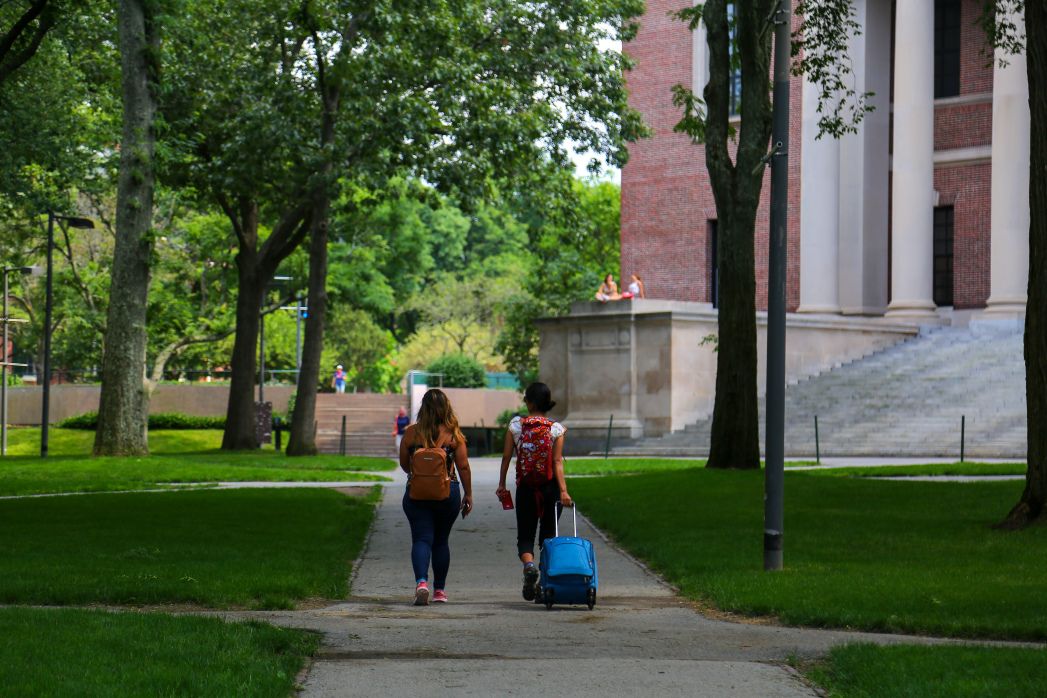Trump administration rescinds rule blocking foreign students from taking online-only classes

A few minutes every morning is all you need.
Stay up to date on the world's Headlines and Human Stories. It's fun, it's factual, it's fluff-free.
On Tuesday, the Trump administration rescinded an Immigration and Customs Enforcement (ICE) policy that would have required international students enrolled in colleges offering online-only courses in the fall semester to leave the United States.
The rescission means that during the upcoming fall semester, international students can take online-only courses, which multiple universities across the nation have switched to because of the COVID-19 pandemic.
The reversal comes after the July 6 policy faced multiple lawsuits. Backed by over 200 universities, Harvard University and Massachusetts Institute of Technology (MIT) filed the first of these suits in the US District Court in Massachusetts on July 8.
Judge Allison Burroughs, who was expected to hear oral arguments in relation to the lawsuit on Tuesday, announced ICE’s rescission during the beginning of court proceedings on Tuesday.
“The government has agreed to rescind the July 6, 2020, policy directive and the frequently asked questions, the FAQ’s, that were released the next day on July 7. They have also agreed to rescind any implementation of the directive,” said Burroughs according to a transcript of the hearing.
She added, “I have been informed by the parties that they have come to a resolution. They will return to the status quo.”
How the rescission played out
On July 6, ICE announced that, in accordance with the nation’s existing visa guidelines, international students enrolled in colleges offering online-only courses in the upcoming fall semester would have to leave the US
ICE had temporarily suspended the visa rules in March because of the COVID-19 pandemic, allowing international students to continue their education online, even as many universities across the nation closed down their campuses.
However, the July 6 rule had been seeking to reverse the March suspension.
On July 8, Harvard and MIT, both among the many universities offering mostly online courses in the fall, filed a lawsuit alleging that the Trump administration had violated the Administrative Procedures Act (APA).
The lawsuit argued that the Trump administration’s declaration of emergency in March because of the pandemic is still in effect, meaning ICE’s March waiver of online learning restrictions should similarly remain in place.
It also alleged that ICE’s July 6 policy was “arbitrary and capricious” and therefore illegal according to the APA.
The lawsuit also relied heavily on the precedent set by the Supreme Court’s decision last month to reject the Trump administration’s plan to reverse the Obama-era Deferred Action for Childhood Arrivals program (DACA), which gave a renewable two-year legal status to immigrants brought to the US as children.
The Supreme Court ruled that the Trump administration didn’t provide adequate justification under APA to end DACA.
On Monday, attorneys general of 17 states and Washington, DC also filed a lawsuit alleging that ICE had violated APA with its July 6 rule. The lawsuit was headed by Massachusetts Attorney General Maura Healey.
Healey lauded the outcome in a statement, saying the Trump administration “knew it didn’t have a chance” in court.
“This ICE rule was senseless and illegal the minute it came out, and the Trump Administration knew it didn’t have a chance. This is why we take action in court, why we stand up for our values, and why we will remain vigilant in protecting our international students from these harmful disruptions.”
She added, “For the hundreds of thousands of international students across this country who enrich our institutions and strengthen our communities–we celebrate this victory with you.”
Harvard University President Lawrence Bacow also celebrated the outcome.
“This is a significant victory. The directive had disrupted all of American higher education. I have heard from countless international students who said that the July 6 directive had put them at serious risk. These students–our students–can now rest easier and focus on their education, which is all they ever wanted to do.”
According to the Institute of International Education, nearly 1.1 million international students were enrolled in the US during the 2018-19 academic year. According to the US Department of Commerce, they contributed US$44.7 billion to the economy in 2018.
Have a tip or story? Get in touch with our reporters at tips@themilsource.com




Comments ()